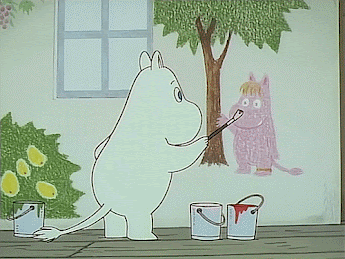What is a mentor?
In class this past week, we talked about mentors. That got me thinking...
The dictionary defines a mentor as an experienced and trusted adviser. Mentors always have a positive connotation attached to the name. It's like the teacher that inspired you to pursue a particular career, or I remember distinctly in elementary school the reappearing essay topic, "Write about a person you look up to."
I wrote about my mom, just like most everyone else. I know, so original and memorable.
Being a mentor meant holding great responsibility in inspiring positive growth for the younger individual, nurturing the small flame into a big one, and bringing advice and knowledge to a scattered canvas.
However, in the Purple Hibiscus, the word mentor divides the original meaning, cuts it up into small pieces, and rearranges it into a finished puzzle with the puzzle pieces' edges forcefully shoved into incorrect laser-cut patterns.
At the moment, Eugene is Kambili's mentor and her family's mentor as well. Kambili's father, revered throughout Nigeria, ignores his family's well-being to avoid sin. Being a religious fanatic, he imposes strict laws on his family, blindsided by obeying and carrying out God's wishes.
"Papa smiled, and I wished I had said that before Jaja had" (Adichie 25).
If Kambili had to write an essay about someone she admired, it would likely be about her father. The idea of a mentor is twisted ironically. Kambili strives to please, powered by fear of consequences from disobedience and entangled with an outsider admiration of Eugene's commitment to community service.
Kamibili follows.
Another moment that disturbed me was the violence her father showed to Kambili eating before the Eucharistic fast because of period cramps. He whipped her.
Adichie explores how blatant religious beliefs suppress femininity and freedom. We see it in Kambili's whipping and praying for Mama's "forgiveness" due to her miscarriage. By believing so firmly in descriptions and traditions, Eugene becomes a follower in his mind but remains a dictator to others. The paradox that lies in his mind and the directives he orders out for his family to follow highlight the tragedy of submerging in a static understanding of the world.
We still stigmatize getting periods, period cramps, painful symptoms in modern-day society. That makes me wonder, is it unspoken because of the residue that lies from tradition, that lies from dictatorship from men and religion? Additionally, miscarriages are even further frowned upon, stigmatized as a mother's fault for not being able to care for a child. The distaste in the subject damages a woman's self-confidence even more, imposed so carefully to hurt their already fragile grief of losing a child intentionally.
Back to mentorship.
This toxic depiction of a mentor emphasizes the effect mentors have on people who look up to them. Another representation of toxic mentoring is from Troy in Fences. Cory does perceive Troy as a mentor, not because he believed that Troy's ideals were correct, but because he was terrified to disobey. He was terrified to ignore "the gigantic space he took up".
Mentors are sometimes not always there to encourage growth but to halt it. Eugene is a symbol of tradition and the consequences of stagnancy. But even he shows compassion to strangers: donating endlessly, funding children and family members. This murky declaration of a person's character questions the idea of believing blindly in a mentor(much like Eugene's behavior to Christianity).
It is up to us to decide whether to follow the "mentor's" ideas and advice. We still contain the underlying strength of our individuality and freedom to pursue something different from those that came before us.
"I don't want to be Troy Maxson. I want to be me" (Wilson 137).



Comments
Post a Comment